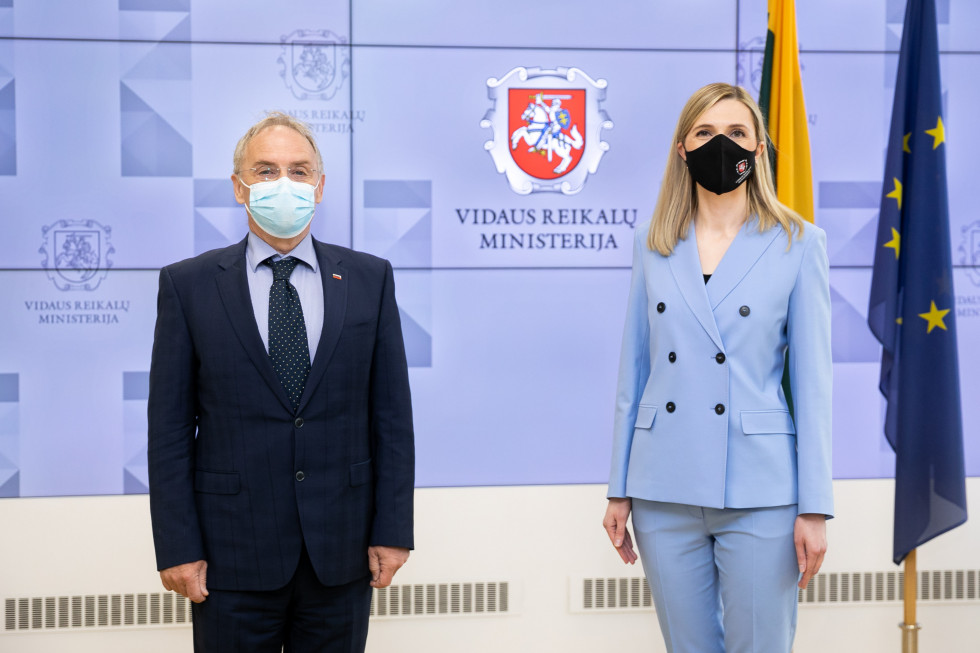By UKOM
Minister of the Interior, Aleš Hojs, met with the Lithuanian Minister of the Interior, Agnë Bilotaitë, this morning in Vilnius, as part of preparations for Slovenia’s presidency of the EU Council. In the afternoon, the Minister met with the Latvian Minister of the Interior, Sandis Ģirģens, in Riga.
The Minister presented to his colleagues the priorities of the Slovenian presidency in the area of home affairs, where our objectives will be to make progress in the negotiations on the Pact on Migration and Asylum, strengthen the Schengen area and provide a high level of security in the EU and Slovenia.
“Minister Bilotaitë assured me that Lithuania would be a constructive partner in negotiations, which I am very pleased about,” said Minister Hojs. He was equally positive in his evaluation of the meeting with his Latvian counterpart, who had pledged his support for the priorities in the field of home affairs.
“We have similar views on migration,” said Mr Hojs, adding that both countries supported progress on the external dimension of migration as well as addressing the causes of migration and maximising return effectiveness, and they, like Slovenia, advocated flexible solidarity with a set of different measures to assist Member States under pressure.
The Ministers also touched upon the migration situation in the Western Balkans, which will be Slovenia’s regional priority during the Presidency. Minister Hojs took the opportunity to sincerely thank the Lithuanian and Latvian colleagues for the positive response to our request for assistance in controlling the Slovenian southern border, where most cases of illegal border crossing are detected. Soon some police officers from Lithuania and Latvia will be deployed to Slovenia in order to assist the Slovenian police in controlling the border with Croatia.
As for internal security, both Member States support enhancing police cooperation and information exchange as well as the strengthening of Europol’s mandate, as it provides a lot of assistance in analysing large databases, particularly to smaller Member States.
